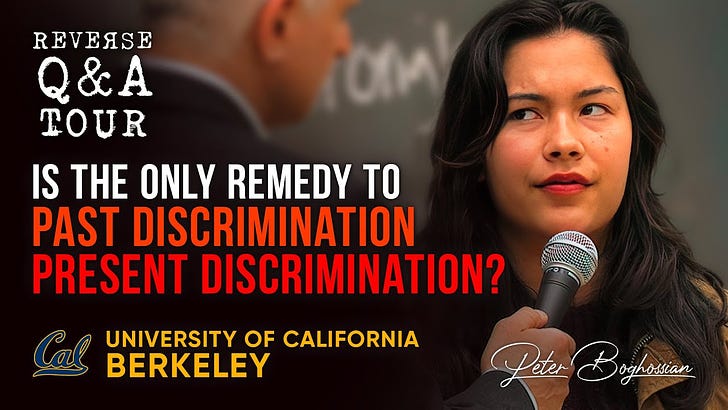Kendipalooza #5: The Only Remedy to Past Discrimination is Present Discrimination | Berkeley (Dwinelle Hall)
At the University of California Berkeley, we had two lively discussions on the claim, “The only remedy to past discrimination is present discrimination.” We decided to feature both as our final two episodes in Kendipalooza this week.
This conversation occurred in Dwinelle Hall during Peter’s Reverse Q&A event at Berkeley. Participants looked at the claim through various lenses, including Christianity, wealth inequality, and the Armenian genocide.
You can view Peter’s reflection on the claim and the first conversation in the series here, the second here, the third here, and the fourth here.



I really love seeing these discussions — especially this one because these kids seemed really enthusiastic to answer the questions and think about it. I would love to see more teachers embrace this style of teaching. Even with young children, asking questions to get them to think through concepts can be invaluable to their overall education. Better yet, they feel self-confidence and empowerment for working through the problems on their own.
Thanks for posting these. They should be required watching for all teachers.
wow! some intelligent young people who didn't reflexively jump on the racial justice bandwagon. how did that happen?